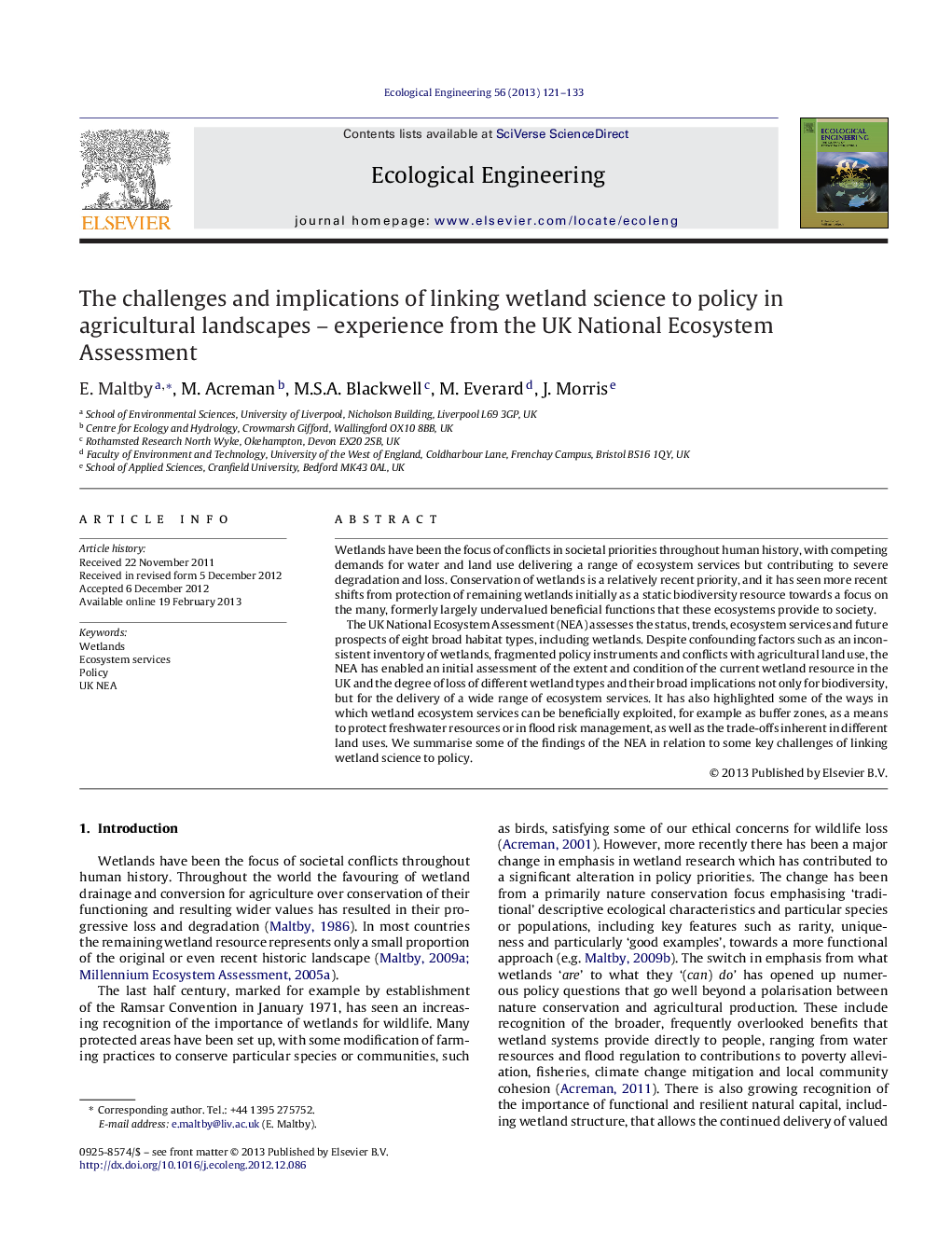| Article ID | Journal | Published Year | Pages | File Type |
|---|---|---|---|---|
| 4389656 | Ecological Engineering | 2013 | 13 Pages |
Wetlands have been the focus of conflicts in societal priorities throughout human history, with competing demands for water and land use delivering a range of ecosystem services but contributing to severe degradation and loss. Conservation of wetlands is a relatively recent priority, and it has seen more recent shifts from protection of remaining wetlands initially as a static biodiversity resource towards a focus on the many, formerly largely undervalued beneficial functions that these ecosystems provide to society.The UK National Ecosystem Assessment (NEA) assesses the status, trends, ecosystem services and future prospects of eight broad habitat types, including wetlands. Despite confounding factors such as an inconsistent inventory of wetlands, fragmented policy instruments and conflicts with agricultural land use, the NEA has enabled an initial assessment of the extent and condition of the current wetland resource in the UK and the degree of loss of different wetland types and their broad implications not only for biodiversity, but for the delivery of a wide range of ecosystem services. It has also highlighted some of the ways in which wetland ecosystem services can be beneficially exploited, for example as buffer zones, as a means to protect freshwater resources or in flood risk management, as well as the trade-offs inherent in different land uses. We summarise some of the findings of the NEA in relation to some key challenges of linking wetland science to policy.
